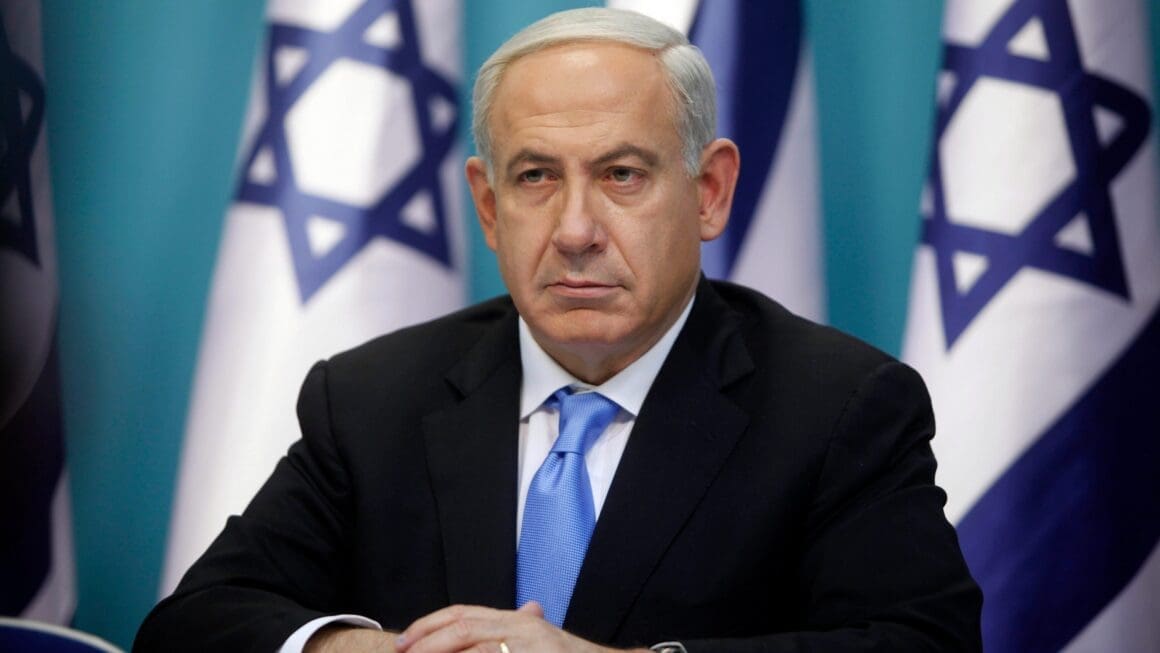Israeli Prime Minister Benjamin Netanyahu took the stand in Tel Aviv, challenging corruption charges levied against him, in a trial that has captivated national attention.
Netanyahu, facing serious allegations of fraud, breach of trust, and accepting bribes, asserted his innocence as he testified in a fortified courtroom. He became the first sitting Israeli leader to serve as a criminal defendant, marking a significant moment in his lengthy political career. While dismissing the charges as insignificant compared to his efforts to safeguard Israel’s interests, Netanyahu sought to portray himself as a victim of a biased legal system and hostile media.
During his testimony, Netanyahu strongly denied claims that he accepted valuable gifts, such as cigars and champagne, from a Hollywood producer in exchange for favors. He also rejected accusations of promoting favorable regulations for media moguls in return for positive coverage. Netanyahu described these accusations as part of an orchestrated “witch hunt” against him by opponents eager to oust him from power.
The trial has further deepened political rifts in Israel, already strained by the ongoing conflict in Gaza and international criticisms. Outside the courthouse, protesters, both supporting and opposing Netanyahu, vociferously expressed their views. Some protestors carried banners labeling him a “Crime Minister,” encapsulating the contentious nature of the proceedings.
Amid these serious allegations, Netanyahu maintained a composed demeanor, arguing that his commitment to Israel remains steadfast despite the personal and political challenges. He emphasized that he had eagerly awaited the opportunity to contest what he termed as “absurd” accusations and claimed his testimony would undermine the credibility of the charges.
As Netanyahu defended his record, he shared personal anecdotes, hinting at his disdain for luxuries while emphasizing the exhausting demands of his role. His lawyer, Amit Hadad, accused the justice system of constructing unfounded accusations to entrap Netanyahu, underscoring the defense’s stance that the legal pursuit lacks substance.
The court proceedings, scheduled for several weeks, have sparked questions regarding Netanyahu’s ability to manage his duties amid the nation’s ongoing conflict and regional tensions. Critics raised concerns about the implications of a leader embroiled in a lengthy legal battle, especially when Netanyahu continues to face pressure over unresolved issues such as hostages held in Gaza and allegations of war crimes.
Netanyahu’s political future hangs in the balance, with public support waning following criticism over his handling of recent attacks by Hamas. Despite international calls to conclude the conflict in Gaza, the war persists, exacerbating the pressure on Netanyahu. His legal battle has only added to the complexity of his leadership, with a verdict not anticipated until 2026.
As Israel’s longest-serving prime minister, Netanyahu’s trial not only tests his personal integrity but also highlights the deep divisions within Israeli society. The outcome will likely have profound implications for the political landscape and Netanyahu’s enduring legacy.
Source: Wsvn














